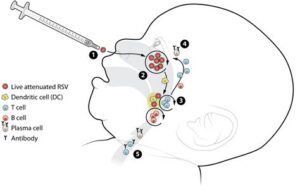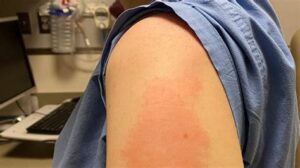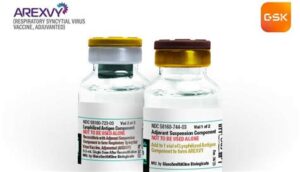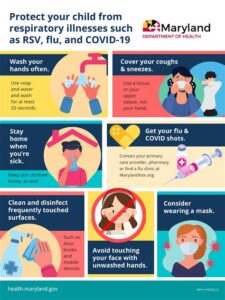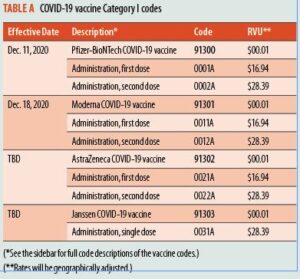Explore the RSV vaccine’s development, efficacy, its combination with COVID vaccines, and future prospects for enhanced respiratory health in this informative guide.As the world continues to navigate the ongoing challenges posed by respiratory viruses, the development of vaccines has emerged as a critical tool in safeguarding public health. Among these, the RSV vaccine has garnered significant attention, particularly in conjunction with the COVID-19 vaccine. Respiratory Syncytial Virus (RSV) is a leading cause of respiratory illness in infants and older adults, making the need for an effective vaccine more pressing than ever. This blog post will explore the current landscape of the RSV vaccine, its efficacy in combating respiratory illness, and the promising potential of combining it with COVID-19 vaccinations. Additionally, we will discuss the future outlook for RSV vaccine development, shedding light on innovations and strategies that may soon pave the way for a healthier tomorrow. Join us as we delve into this vital topic impacting countless lives around the globe.
What is the RSV vaccine?
The RSV vaccine is designed to protect against respiratory syncytial virus (RSV), a common virus that can lead to serious respiratory illnesses, particularly in infants, young children, and older adults. RSV is known for causing bronchiolitis and pneumonia, making vaccination crucial in preventing these life-threatening conditions.
There are several types of RSV vaccines under development, including live attenuated, subunit, and mRNA vaccines. These various approaches aim to stimulate the immune system to prepare the body to fight off an RSV infection effectively. For example, mRNA vaccines leverage a technology similar to that used in some COVID vaccines, prompting the body to produce proteins that help build immunity against RSV.
The need for an RSV vaccine has become even more pressing in recent years, as the pandemic underscored the importance of vaccinations in safeguarding public health. With global health authorities prioritizing RSV research, the vaccine’s development is quickly gaining momentum, potentially leading to new treatments that could be combined with other vaccines, such as the COVID vaccine.
Development of RSV vaccine
The Respiratory Syncytial Virus (RSV) is a significant cause of respiratory illness, particularly among infants and the elderly. Efforts to develop a vaccine for RSV have been underway for several decades, but the journey has been complex and challenging.
Early attempts to create an RSV vaccine in the 1960s encountered setbacks, including a vaccine that did not provide protection and resulted in severe illness among vaccinated infants. This unfortunate experience led to further research and caution in the development process. Throughout the years, various strategies have been explored, including live attenuated vaccines, subunit vaccines, and vector-based vaccines, aiming to elicit a strong immune response against RSV.
In recent years, the development of RSV vaccines has seen significant advancements. Clinical trials have shown promising results, with several candidates entering late-stage testing. Researchers are particularly excited about the potential for a combined RSV vaccine with other respiratory vaccines, such as the COVID-19 vaccine, to streamline im
Efficacy of RSV vaccine
The efficacy of the RSV vaccine has garnered significant attention as researchers work to address respiratory syncytial virus (RSV) infections, particularly in young children and the elderly. Clinical trials have shown promising results, indicating that the vaccine can significantly reduce the incidence of RSV-related hospitalizations and severe respiratory illness.
One of the key studies demonstrated that among high-risk infants, the RSV vaccine provided a protection rate of approximately 70%. This level of efficacy marks a substantial advancement in the fight against RSV and can potentially save countless lives. It is particularly vital during the RSV season when outbreaks are most common.
Moreover, the RSV vaccine’s effectiveness can be enhanced when used in conjunction with other vaccinations, such as the COVID vaccine. These combined strategies not only improve immunity but also help streamline vaccination efforts, especially in vulnerable populations. Future research will focus on optimizing vaccine combinations to maximize overal
Combining RSV vaccine with COVID vaccine
As the world grapples with the ongoing implications of the COVID-19 pandemic, research into the development of effective vaccines has never been more crucial. One promising area of research focuses on the combination of the RSV vaccine with the COVID vaccine. This innovative approach aims not only to enhance immune responses but also to simplify vaccination protocols, especially in vulnerable populations.
The Respiratory Syncytial Virus (RSV) is a major cause of respiratory infections, particularly among infants and the elderly. The recent advancements in the RSV vaccine development provide an opportunity to explore how it can be effectively combined with COVID-19 vaccinations. Such combos could potentially increase efficiency in public health strategies by minimizing the number of visits patients need to make to healthcare facilities.
Initially, researchers are investigating several combination strategies, including co-administration during a single visit or formulating a combinatorial vaccine that targets both viruses simultaneously. Early studies indicate that this could lead to a robust immune response while ensuring that populations at high risk are protected from both COVID-19 and RSV. Collaborative efforts from pharmaceutical companies and health organizations are essential as they endeavor to create a vaccine that combines these two crucial components of respiratory health.
Future outlook for RSV vaccine development
The future of RSV vaccine development is a critical area of research, especially given the increasing recognition of the respiratory syncytial virus (RSV) as a significant cause of disease in both infants and the elderly. Ongoing efforts aim not only to enhance vaccine efficacy but also to improve delivery methods.
Researchers are exploring various platforms for RSV vaccines, including live-attenuated, inactivated, and subunit vaccines. The goal is to create formulations that can be easily combined with other vaccines, such as the COVID-19 vaccine, to streamline immunization processes and improve public health outcomes.
Moreover, continuous surveillance of RSV strains will be vital for adapting vaccine formulations. By applying advanced technologies like mRNA platforms, the future RSV vaccine could provide broader and more effective protec
Frequently Asked Questions
What is the RSV vaccine and how does it work in conjunction with the COVID vaccine?
The RSV vaccine is designed to protect against respiratory syncytial virus, a common virus that can cause severe respiratory illness, especially in infants and the elderly. When administered alongside the COVID vaccine, both vaccines can stimulate the immune system to produce antibodies, offering protection against both viruses.
Are there any concerns about receiving the RSV vaccine and the COVID vaccine together?
Current research indicates that co-administration of the RSV vaccine and the COVID vaccine is generally safe. However, individuals should always consult with healthcare providers to discuss any potential risks, especially if they have underlying health conditions.
What populations are most recommended to receive the RSV vaccine?
The RSV vaccine is particularly recommended for high-risk populations, including premature infants, young children with certain health conditions, and older adults with weakened immune systems. Following local health guidelines is crucial for determining eligibility.
Can receiving both vaccines together affect the efficacy of either vaccine?
Studies suggest that receiving the RSV and COVID vaccines together does not negatively affect the efficacy of either vaccine. Both vaccines can effectively generate an immune response when given concurrently.
What are the side effects of the RSV and COVID vaccines when taken together?
Side effects may include mild reactions such as soreness at the injection site, fatigue, headache, or mild fever. Serious side effects are rare but can include allergic reactions. Monitoring by healthcare professionals post-vaccination is recommended.
Is there any specific timeline for when to get the RSV and COVID vaccines?
Individuals should follow public health guidelines regarding the timing of vaccine doses. Generally, both vaccines can be scheduled at the same visit or as part of routine vaccinations during the flu season.
How can individuals stay informed about the latest recommendations for the RSV and COVID vaccines?
Staying informed can be achieved by regularly checking updates from health authorities such as the CDC or WHO, consulting healthcare providers, and following credible news sources for any changes in vaccine guidelines.
